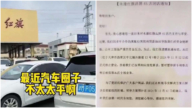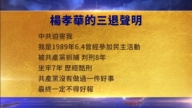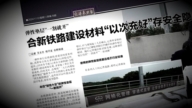【新唐人2011年6月7日訊】大陸上被稱為“二幣”(第二人民幣)的「消費購物卡」,由於被普遍認為是特權部門貪污賄賂的管道之一,中共國務院近期轉發了人民銀行等七部委《關於規範商業預付卡管理的意見》,希望扼止歪風。不過有媒體質疑:這種不動腦筋就能破解的「反腐政策」,不過是一種「懶人政策」。
對於國務院等七部委整治購物卡歪風的所謂「新政策」,這個月初《南方週末》報導說,破解「新政策」的方式「再簡單不過」。由於整治購物卡的主要特點集中在「實名制」、「非現金」和「限額」等三個新措施。
比如「實名制」規定:一次性購買1萬元以上的「不記名」購物卡,發卡人必須實名登記,破解之道就是一次只買9999元。
而「非現金」的要求是,一次購卡達5000元以上,或個人一次購卡達5萬元以上,要通過銀行轉賬,那就一次買4999元、個人一次買49999元,一樣可以用現金購買。
「限額」的措施要求:不記名購物卡的面值不超過1000元,記名的不超過5000元,那麼,破解方式麻煩點,不過,多買幾張卡就是了。
《工人日報》的記者實地採訪也發現,像金融街這種購物卡交易盛行的地方,街上的收卡黃牛人數其實沒有減少,只是不像以前那麼高調,可能躲到不顯眼的地方,或偽裝成為消費者在商場內閒逛。
有「黃牛」私下說:新制度規定,單位一次性購卡5000元及以上,或個人一次性購卡5萬元以上,只能轉賬或憑支票,因此能查到是哪家公司辦的。不過只要給「黃牛」足夠的手續費,就有人可以代買購物卡,這樣銀行轉賬記錄就查不到真正買卡的是誰?要再通過發票查到實際購買者的可能性根本不大。
而消費者購物時,收銀小姐往往睜一只眼,閉一只眼,不去理會購物卡是不是「實名」的問題。“黃牛”們仍然可以以購物卡代替消費者付費,消費者再以現金形式打折返還給“黃牛”,一位女士跟媒體說:商場不會因為我刷的不是我的名字的購物卡,就不讓我消費吧?
《工人日報》記者估計,如果像黃牛說的,每月辦卡業務量有20單的話,每個購物卡金額有10萬元,手續費最低5%,也就是5000元的話,每個月光是手續費的收入就超過10萬元。
《南方週末》還指出,這次出臺的購物卡新政,看起來像是七部委聯合發文,由國務院轉發,演出陣容豪華,不過經驗告訴大家,越是「齊抓共管」,最後越是「九龍治水」,誰也不想管。而且所謂的「管理意見」不是法律,轉發意見的國辦只是國務院內設的辦事機構,沒有執法權。最後可能只剩下一紙空文。賣購物卡的商家和買購物卡的單位根本不怕,商家甚至連「下有對策」都懶得想。
現在中國要整治的恐怕不只一張小小的購物卡。像是各地盛行的:過節不收禮,收禮只收「腦白金」—健康品禮盒!天價茅臺酒!鑲鑽戒月餅!民眾都知道這些就是專門用來「送禮」的。
《南方週末》的記者感慨,像購物卡這種國外用來便利刺激消費的工具,為甚麼一到中國就變了味了?值得民眾深思。
新唐人記者曾耀賢、柏妮綜合報導。
Signatured Shopping Cards against Bribery
Shopping cards, as RMB’s substitute,
are widely used for bribery by the privileged in China.
CCP (Chinese Communist Party) State Council
reprinted 7 ministries’ Suggestions on Commercial
Card Regulation, in the hope to end corruption.
The new policy’s effectiveness is being questioned.
Local media Southern Weekend reported that
it’s so easy to get around this new policy.
The policy focuses on three new features:
Real-name system, Non-cash and Limits.
Card holder registration is compulsory for
all cards worth over 10,000 RMB.
The way is to purchase cards worth RMB 9,999.
For purchases of cards of over RMB 5,000 and
individual one-time purchases of over RMB 50,000,
payments must be made through bank transfers.
People can simply make purchases of RMB 4,999.
As per Limits requirement, non-holder-registered
shopping cards’ value cannot exceed RMB 1,000.
Registered cards’ value cannot exceed RMB 5,000.
However, people can simply purchase more cards.
Reporters from Worker Daily have found that
at places such as the financial districts, there were
still many shopping card scalpers with a low profile.
Many disguised themselves as shoppers.
Some scalpers tipped off reporters that
although the shoppers’ identities are traceable
with purchases with checks or bank transfers,
scalpers can help buy shopping cards for a fee.
In this way, it is difficult to trace the actual buyers.
Also, the cashiers normally turn a blind eye on
the issue of shopping cards registration.
Scalpers can still make payments for consumers,
who then pay the scalpers with cash.
A lady said, stores wouldn’t forbid her to shop,
just because the card she has bears a different name.
Worker Daily estimated, according to the scalpers,
if there are 20 card transactions in a month,
with a value of RMB 100,000 each and
a commission of minimum 5% of the card value,
the commission fees alone exceed RMB 100,000.
Southern Weekend also pointed out that
although this new policy is issued by 7 ministries
and reprinted by the CCP’s State Council,
in practice, nobody will take real charge.
The so-called Suggestions are not laws,
and its reprinting authorities within the State Council
have no law enforcement power.
The buyers and sellers of the shopping cards
are not concerned about the new policy at all.
There are more issues in China than shopping cards.
The prevalent melatonin products, health gift boxes,
luxury Maotai Spirit and diamond ring moon cakes
are widely known to be used for bribery.
Southern Weekend reporters questioned,
cards are used elsewhere to stimulate consumption,
why did their purposes get changed in China?
NTD reporters Zeng Yaoxian and Bo Ni





























